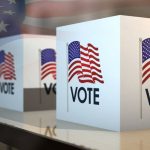Spring in Wisconsin: Slight Chance of Showers with a Great Chance of Heavy Advertising
 This semester in Professor Lisa Mazzie’s Advanced Legal Writing: Writing for Law Practice seminar, students are required to write one blog post on a law- or law school-related topic of their choice. Writing blog posts as a lawyer is a great way to practice writing skills, and to do so in a way that allows the writer a little more freedom to showcase his or her own voice, and—eventually for these students—a great way to maintain visibility as a legal professional. Here is one of those blog posts, this one written by 2L Randy Jones.
This semester in Professor Lisa Mazzie’s Advanced Legal Writing: Writing for Law Practice seminar, students are required to write one blog post on a law- or law school-related topic of their choice. Writing blog posts as a lawyer is a great way to practice writing skills, and to do so in a way that allows the writer a little more freedom to showcase his or her own voice, and—eventually for these students—a great way to maintain visibility as a legal professional. Here is one of those blog posts, this one written by 2L Randy Jones.
In Wisconsin, the weather may serve as an indicator of spring. I say “may” because the weather often teases us. Most people would say indicators of spring are pollen or budding of trees, bushes, and flowers. For some, it’s the lake trout (Steelhead) swimming up the rivers to spawn. But a sure indicator is political advertising, even for positions that should not be political. I began to wonder why I am seeing so many advertisements. It seemed to me that everywhere I looked, even scrolling down Facebook, I was being shown an advertisement (subconsciously) telling me to vote for Judge Rebecca Dallet for Supreme Court.
Every spring, Wisconsin has an election. Sometimes the election is for judges, for school board representative, and sometimes for state superintendent. Wisconsin has a problem: voter turnout in Wisconsin primaries has been historically low, even sometimes for a presidential race.
